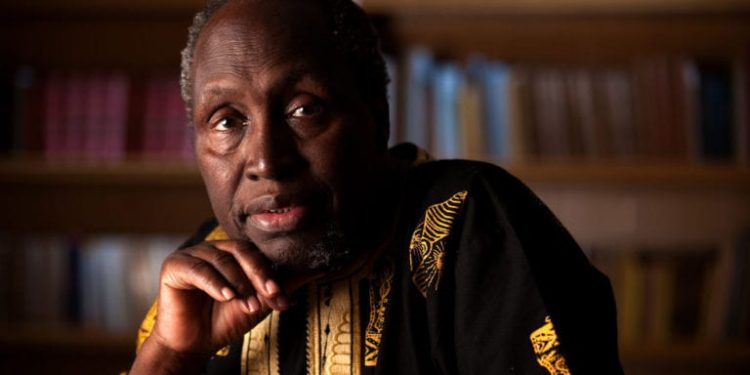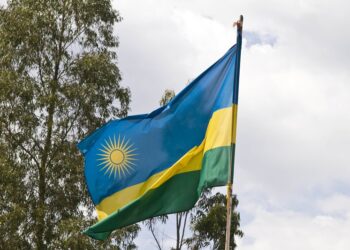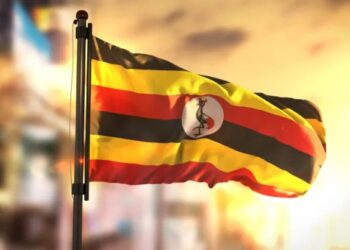Ngũgĩ wa Thiong’o is one of Africa’s most prominent literary and intellectual voices and a pivotal figure in the anti-colonial and post-colonial struggles. Through his prolific body of work spanning novels, plays, criticism, and essays, Ngugi has shaped an intellectual and literary movement that advocates for the reclaiming of African identity, the rejection of cultural subordination, and the defence of indigenous languages. His literary and intellectual career is a true reflection of the modern history of Kenya and Africa, and his influence continues to resonate in academic, political, and literary circles today.
According to Professor Emnet Tadesse Woldegiorgis, Ngũgĩ wa Thiong’o “redefined the purpose of African literature, insisting that it must speak to its people in their own languages, reflect their histories, and resist the epistemic violence of colonial modernity.”
Ngugi wa Thiong’o was born in 1938 in Kamirithu, Kenya, under British colonial rule. His early years were marked by violence and immense challenges, as the Mau Mau Uprising profoundly impacted his life and that of his family. This early experience planted within him the seeds of resistance and political awareness that would inform his later works. He was educated at Makerere College, University of East Africa, Uganda, where he studied English literature. He then pursued postgraduate studies at the University of Leeds in the United Kingdom. It was at this stage that his critical view of the English language as a colonial tool and its impact on African culture began to take shape.
Ngugi began his literary career by writing his first novels in English, such as Weep Not, Child (1964) and The River Between (1965), which dealt with themes of cultural conflict and the impact of colonialism on Kenyan society. However, his 1967 novel A Grain of Wheat was a turning point in his career. This novel, which depicts Kenya on the eve of independence, addresses the complexities of the struggle for freedom, betrayal, and hope. In these early works, Ngugi’s narrative style began to emerge, combining realism with deep historical narrative, focusing on characters who embody the conflict between tradition and modernity, nationalism and conflicting loyalties.
But the most significant point in Ngugi’s intellectual and literary career was his decision to switch to writing in his mother tongue, Gikuyu, in the late 1970s. This decision was not merely a personal choice; it was a profound political and cultural statement. Ngugi believed that English, as a colonial legacy, contributed to the “colonization of the mind”, alienating African intellectuals and writers from their original audiences. He called for “Decolonizing the Mind,” the title of one of his most important critical works, published in 1986. In this book, Ngugi powerfully argues that African languages are the authentic vehicles for expressing African experience, heritage, and history, and that adherence to European languages fosters cultural and intellectual subordination.
These bold stances led to a direct clash with the Kenyan authorities. In 1977, Ngugi wrote the play “Ngaahika Ndeenda” (I Marry Whenever I Want) in the Gikuyu language, which was performed at a community centre in Kamirithu, his hometown. The play criticised corruption and exploitation in post-independence Kenya and addressed sensitive issues of class and social class. The play was a popular success, but it angered the Kenyan government. As a result, Ngugi was arrested and imprisoned without trial for a year in a maximum-security prison. During his detention, Ngugi wrote the novel “Caitaani Mũtharaba-inĩ” (The Devil on the Cross) on toilet paper. This novel, one of his most famous works, is a powerful political and social satire that uses fictional narrative to criticise conditions in Kenya.
“Resistance is the best way of keeping alive,” he told The Guardian in 2018. “It can take even the smallest form of saying no to injustice. If you really think you’re right, you stick to your beliefs, and they help you to survive.”
After his release from prison, Ngugi was banned from teaching at the University of Nairobi and faced severe restrictions. In 1982, while visiting abroad, he learnt that he could not safely return to Kenya due to government threats. This marked the beginning of a long period of exile, most of which he spent in the United States. Despite this, he never stopped writing and campaigning. He continued to produce important literary and intellectual works in both Kikuyu and English and dedicated himself to promoting African languages and cultures.
His later works include Mũrogi wa Kagogo (The Wizard of the Crow), a complex fantasy epic that is the longest novel written in the Kikuyu language and addresses issues of corruption, power, and myth.
“Rumor has it that the Ruler talked nonstop for seven nights and days, seven hours, seven minutes, and seven seconds. By then the ministers had clapped so hard, they felt numb and drowsy,” he wrote. “When they became too tired to stand, they started kneeling down before the ruler, until the whole scene looked like an assembly in prayer before the eyes of the Lord. But soon they found that even holding their bodies erect while on their knees was equally tiring, and some assumed the cross-legged posture of the Buddhist.”
Ngugi also continued to write critical essays, such as “Globalectics: Theory and the Politics of Knowing” (2012), in which he expanded the concept of “decolonising the mind” to include a global context and advocated for a multipolar view of knowledge.
Ngugi wa Thiong’o is not just a writer; he is a philosopher, thinker, and activist. His contributions extend beyond literature to encompass the fields of education, politics, and anthropology. He challenged prevailing notions of “world literature” and emphasised the need to recognise the diversity of voices and languages from around the globe. He also inspired generations of African writers and thinkers to embrace their native languages and express their unique experiences.
Ngugi has received numerous international awards and honours in recognition of his contributions and is often mentioned as a potential candidate for the Nobel Prize in Literature. Awards aside, his true legacy lies in his lasting impact on African and global thought and his ability to spark debates about identity, language, and power.
In recent years, Ngugi wa Thiong’o has returned to Kenya for intermittent visits, but he continues to write and engage in intellectual activism. His voice remains powerful and influential in defending African heritage, rejecting cultural appropriation, and advocating for a more just and equitable world where all languages and cultures are valued. In a time of accelerating globalisation, Ngugi’s calls for a “decolonisation of the mind” become even more relevant and urgent, as he invites us to critically reflect on the sources of knowledge, the languages we use to express ourselves, and how these languages shape our view of the world.
Ngugi wa Thiong’o faced significant health challenges late in life. In 1995, he was diagnosed with aggressive prostate cancer, but he made a remarkable recovery. More recently, in 2019, he underwent triple bypass open-heart surgery, during which time he also began to suffer from kidney failure. He died on May 28, 2025, in Buford, Georgia, USA, at the age of 87.



























































